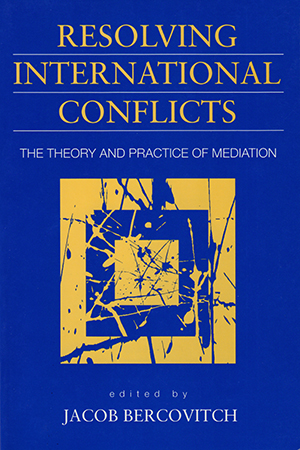
- 1995/282 pages
Resolving International Conflicts:
The Theory and Practice
Paperback: $28.50
ISBN: 978-1-55587-601-2
Mediation is rapidly becoming one of the most important methods of settling conflicts in the post-Cold War world, practiced by virtually every actor and dealing with every conceivable issue in the relations between states. This book represents the most recent trends in and thinking about the process and practice of international mediation.
A coherent, analytical, well-integrated text, complete with real-world examples, the book examines the mediation efforts of various actors, as well as various methods of mediation. Each chapter combines theoretical with practical concerns, making this collection ideal for classroom assignment.
A Leonard Davis Institute Study in International Politics







